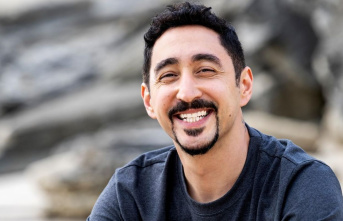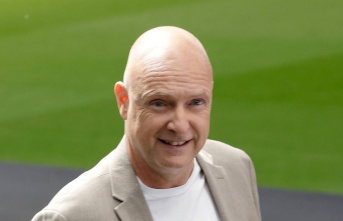Frankfurt inspectors Anna Janneke (Margarita Broich) and Paul Brix (Wolfram Koch) feel like they're on a bad drug trip in the new "crime scene" of Hessischer Rundfunk, which the first broadcast this Sunday (October 16) at 8:15 p.m.
This is particularly due to the fact that the investigators in the crime thriller "Leben Tod Ekstasy" directed by Nikias Chryssos have to deal with the deaths of six men and women after a drug party under medical supervision. They were all patients of Adrian Goser (Martin Wuttke), a controversial psychoanalyst, who was also the sole survivor of the psychedelic horror trip. Unlike the patients, he was content with apple juice instead of a drug cocktail.
The rather tangible Brix, who together with Janneke in previous Frankfurt cases has sometimes carefully given himself the edge, may trust the frustration-busting effect of alcohol. On the other hand, he considers Goser's theory that patients achieve absolute self-knowledge through psychedelic drugs to be quite nonsense and doesn't hold back with it.
negative energies
Negative energies can be felt pretty quickly during the investigation. Janneke is more interested in the whole thing, even if in conversation with Goser she categorically rules out an LSD trip for the time before retirement.
The dialogues between the investigators and Goser, whom Wuttke plays as a sometimes cynical, sometimes slightly demonic explorer of human abysses, characterize this "crime scene" as a psychological chamber play with an increasingly threatening aura. Sometimes he is the puppeteer who has control over his patients, sometimes the man of soft tones and small gestures. Wuttke is no stranger to the "crime scene": He once investigated for the MDR in Leipzig as Commissioner Andreas Keppler.
"I wanted the psychedelic element of the story to translate into the film, and I wanted it to be as trippy and immersive as possible," said director Nikias Chryssos, who co-wrote the screenplay with Michael Comtesse. Flashbacks to drug trips between horror and the eponymous ecstasy contribute exactly to this.
By the way: Psycholysis, as Goser's therapy used in "Tatort" is called, was actually developed in the 1950s. In Germany, however, it is not approved by the health insurance companies and is also not scientifically recognized.
No wonder then that Goser's patients were all wealthy. This also applies to the ambassador's daughter and performance artist Ellen (Aenne Schwarz), who, however, disappeared a year ago and wanted to work through the trauma of a kidnapping and her self-harm both with her art and in therapy. Does her disappearance have anything to do with the deaths? What happened then?
Intoxicating memories
An inspection of the crime scene, for which Goser, as the main suspect, is taken from custody to his magnificent villa, then leads to escalation. Instead of a confession, there are only intoxicating memories.
And then the investigators and their suspect are suddenly trapped: an unknown person blocks all entrances to the villa, a jammer paralyzes the radio signal, and the first shot is fired. The six dead in the first few minutes of this crime scene will not be the last - and to get out of the trap, the detectives have to forge completely new alliances. At the end there is an insight into how useful a whale penis can be, and a new tone of voice between Brix and Janneke.












